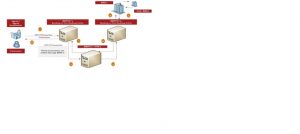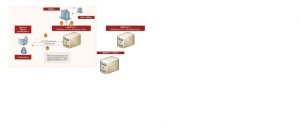Thursday Trivia : The Oracle Question of Portfolio Management
February 8, 2017Thursday Trivia : Top 3 Investing Disciplines from the Life of Rahul Dravid
March 2, 2017It was the evening of November 8, 2016 when most people were either returning from their offices or were already home. It was just another evening when Prime Minister Narendra Modi announced the mass movement of Demonetisation. You can read our Thursday Trivia on Demonetisation here. Around 86% of currency was rendered useless within just a couple of hours, high value notes of Rs. 500 and Rs. 1,000. This was a beginning of a cashless society which we were inching towards one step at time. Now it seemed as if the somebody has put their leg on the accelerator to speed up. However, this move by the government was even criticised by many stating that adequate infrastructure was not available for a move towards being cashless. Infact, as the consensus of people go, it was the rural areas of our country which were the most affected.
Bharat Bill Payment System “BBPS” was launched on a pilot basis in August 2016. Government of India may soon be launching BBPS for rural areas which will make digital payments easy for them to pay for government utility bills. At launch, the system will come with a built in capability to pay for Electricity, Water / Municipality, Gas Supply, Telephone and DTH. In the subsequent phases, institutional payments such as school fees, college fees and subscription fees would be added. Even Insurance, Mutual Funds and Credit Card Bill Payments will be a part of this. In future, there is also a roadmap to add Government Payments, Charity, One Time Payments and many more. Since, it is a mandated system from the Reserve Bank of India, it commands more credibility and safety of transactions over other payment systems. BBPS will be authorised and run by Bharat Bill Payment Central Unit “BBPCU”.
National Payments Corporation of India “NPCI” has also invited existing bill aggregators (the companies or institutions that are charging you bills) and banks to take on the role of Operating Unit “BBPOU”. The interesting part of this system is that it will cover both, online as well as offline payments.

Offline Transaction ~ Image Courtesy : www.npci.org.in

Online Transaction ~ Image Courtesy : www.npci.org.in
Under the offline transaction, the customer will submit his bills to a banking or non banking institution registered as BBPOU which will then forward the same to the billing organisation. Hence, the customer will be relieved from personally going to different organisations to pay his bills. The same will happen in the online transactions, which will facilitate the customer by paying all his bills from a single point of contact.
In case of complaints arising from transaction or service provided, there shall be a centralised complaint management system “CMS” put in place. Customers can register their complaints at any BBPOU portal or agent outlet / branch and Centralised BBPCU Website. Complaints not resolved through CMS, can also be manually uploaded to Dispute Management System.
Features of BBPS does look promising as of now. However, it will get clear with time as to whether it will result in a massive success or not.
Reference : http://www.npci.org.in/documents/BBPS_Product_Presentation.pdf
